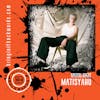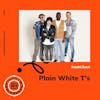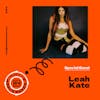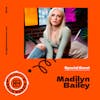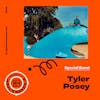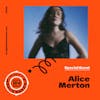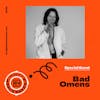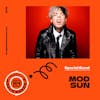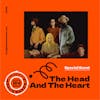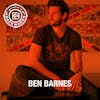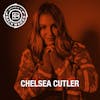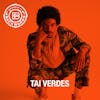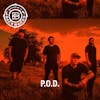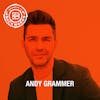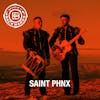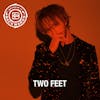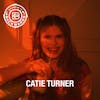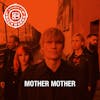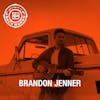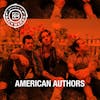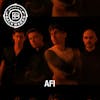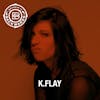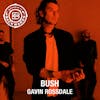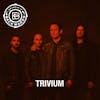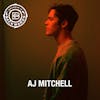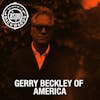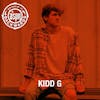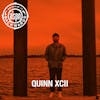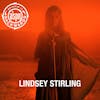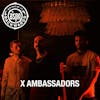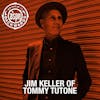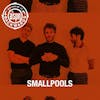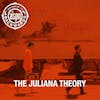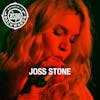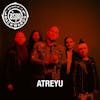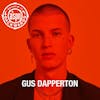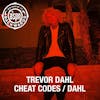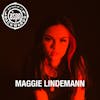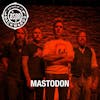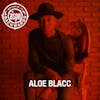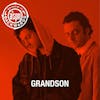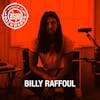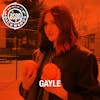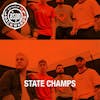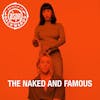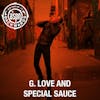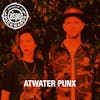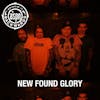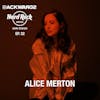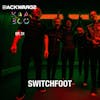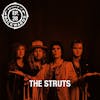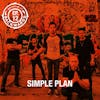Interview with Justin Kawika Young
We had the pleasure of interviewing Justin Kawika Young over Zoom video!
Justin Kawika Young, the singer songwriter who has honed his sublime skills as a member of Colbie Caillat’s band and as a co-founder of their hit collective Gone West, has...
We had the pleasure of interviewing Justin Kawika Young over Zoom video!
Justin Kawika Young, the singer songwriter who has honed his sublime skills as a member of Colbie Caillat’s band and as a co-founder of their hit collective Gone West, has struck out on his own and is sharing a new song—the effortlessly melodic “Back To The Blue.” One of the most uplifting songs in his repertoire, Young weaves past experience and newfound wisdom with heady ocean metaphors that vividly illustrate his post break up state of mind. Produced and performed by Young, the song, which is the title track from his recently released solo album.
ABOUT JUSTIN KAWIKA YOUNG
Born and raised in Hawai’i, Justin Kawika Young first found success in his island home. He accumulated eleven number-one hits on Hawai’i radio before relocating to Los Angeles. He quickly established a following in the local music scene there and connected with other singer/songwriters including Colbie Caillat, eventually joining her band.
Young toured with Caillat as her acoustic guitarist/background vocalist and co-wrote two songs on Caillat’s All Of You album. In 2019 Justin and Caillat formed a band in Nashville with two friends called Gone West. They debuted at The Grand Ole Opry in October of 2019 and their first single, What Could Have Been, hit the top 25 at Country radio. Gone West has accumulated of 30 million Spotify streams.
We want to hear from you! Please email Tera@BringinitBackwards.com.
www.BringinitBackwards.com
#podcast #interview #bringinbackpod #JustinKawikaYoung #ColbieCaillat #GoneWest #NewMusic #zoom
Listen & Subscribe to BiB
https://www.bringinitbackwards.com/follow/
Follow our podcast on Instagram and Twitter!
https://www.facebook.com/groups/bringinbackpod
We'd love to see you join our BiB Facebook Group.
Hello! It's Adam and welcome back to bringing it backwards. A podcast where both legendary and rising artists tell their own personal stories of how they achieved stardom. On this episode, we had a chance to hang out with Justin Young, over zoom video. Justin was born and raised in Hawaii, and he talks about how he got into music actually early on aspire to be like boys to men, you showed up to school in a purple suit was way into vocals and singing different choirs and choruses. It wasn't until his senior year of high school, he started to write songs and was playing ukulele for a class project. He recorded one of the songs, a local recording studio. 6 (2m 8s): Let him record a song there that they then use kind of as a marketing for marketing class, too, to sell. That was the product they're selling. They also hosted a songwriting competition that Justin ends up winning and gets kind of signed to this label. This really independent label in Hawaii, he puts his first full album out. It's getting radio play. He's doing radio shows. His second record does even bigger things. He eventually moves to Los Angeles. He talks about that and going from playing bigger shows, having radio play to like playing restaurants in five-hour sets with a handful of cover songs, he tells us a story about getting the call to play with Colby Kalay on the tonight show or a late night shot. 6 (2m 52s): I think it was at night show. And from there it kind of changed his life. He ends up touring with her. They ended up being in a relationship for a number of years. They started a side band that put out one record right before the pandemic started called go west. But Justin was always working on his solo material, but during the pandemic, lots of things changed in his life. And that's when he really started to focus back on writing and releasing songs of his own. And he tells us all about the song still can't get used to the end, which is his favorite song he's ever written and his most recent song back to the blue. You can watch the interview with Justin on our Facebook page and YouTube channel at bringing it backwards. 6 (3m 33s): It'd be awesome if you subscribe to our channel like us on Facebook and follow us on Instagram, Twitter, and Tech-Talk at bringing back pod. And if you're listening to this on Spotify, apple music, Google podcasts, we would love it. If you follow Sarah as well and hook us up with a five star review, 7 (3m 50s): We'd appreciate your support. If you follow and subscribe to our podcasts, wherever you listen to podcasts, 6 (3m 55s): We're bringing it backwards with Justin Young. This podcast is about you and your journey and music. And we'll talk about the new stuff you have out as well. 8 (4m 5s): Great. I love it. 6 (4m 6s): Cool. I did see you're born. You're born in Hawaii, correct? 8 (4m 10s): Born and raised in Hawaii. Yeah. Have you been, 6 (4m 13s): I've been only once we went my, my wife and my older son at the time, my younger son was born yet. We went and stayed at the Alani hotel. Total tourist sleeping. Yeah. We went there and went to what's the, is it pipeline the big they do the big surf contest. Yeah. I just wanted to go in the water just to say, cause like growing I've I'm from San Diego. So surfing, surfing was it? I didn't surf, but all my friends did. I skateboarded all my friends served and I remember seeing like videos and like posters on people's walls of like pipeline. And I told my wife, I'm like, I just need to go in the water and then swim out to say that I did it 8 (4m 56s): Rough. 6 (4m 58s): I mean, not the water. I mean, the waves weren't big yet, but like the, the sand is so like sink, like you sink. So I was, it was kind of hard to get out. I'm not gonna lie. 8 (5m 11s): Well, you can say you did it, man. 6 (5m 13s): That's all that mattered. Does the whole point of it. Like I just needed to get into the water and like where we went in, it was kind of steep. Like there's like a lifeguard tower and it's pretty steep to even get in. Like, you can't really like, hang on the beach, but obviously, you know, but try to get out. I was like, okay, I got out. I'm good. I don't need to go back and do that ever again. 8 (5m 32s): You survive. 6 (5m 34s): Right? Right. Exactly. I went in, I lived to tell about it. Whereabouts and why did you live or where'd you go? 8 (5m 45s): So I, I grew up mostly in Kailua, which is on the east side of Oahu. Okay. Yeah. A little, a little, a cute little town. That's now bustling with whole foods and target that obviously wasn't there when I grew up, but it was a beautiful place and you know, can walk or ride your bike to the beach every day. And I was pretty special. Yeah. I was really lucky to grow up there. 6 (6m 5s): That's awesome. Did you serve at all or? 8 (6m 8s): I did it. I mean like you, yeah. I feel like I disappoint everyone cause they're like, oh, you're from Hawaii. Do you surf? And I'm like, I'm sorry. I have to Tell you right now. I love the ocean is not really. I mean, I didn't grow up in a surf. There's not really a surf spot in Kailua necessarily. It's more like bodyboarding and there's like, whatever it's windy. So there's like when, when gliding and stuff like that, wind surfing, 6 (6m 33s): But 8 (6m 35s): I love the ocean. Never, never got into surfing. I do regret it. I feel like at my age and with my height, it would be too hard to start surfing being out there, getting thrashed around at this point. But, 6 (6m 52s): But 8 (6m 52s): I, I admire surfers cause like you get to be in the ocean, it's like a meditative thing and they're all fit in like Sunkist and like you get all the good things, you know? 6 (7m 2s): Right. Yeah. I know if you're the surfer, like all the chicks or about you and like they're the Jews like going to the beach at like five in the morning before school. I'm like really like, 8 (7m 13s): Oh man. Cause that's, I mean it's addicting. You see it. Like people just quit their jobs and leave their families 6 (7m 21s): Move to like Costa Rica. Yeah. That's funny. Well, how did you get into music? Do you have a cover of musical family at all? 8 (7m 30s): I mean, not necessarily. My mom was raised by a single mom and she loved music and always encouraged a love of music. But, and saying to me, even though she can't see very well, she would, she jokes that just tell her to stop. But, but she, I think she, she encouraged a love of music in me and culturally, like in Hawaii, music is a big part of, you know, every get together and I carry my ukulele around school and we play at, you know, at, at lunch and every party kind of ends up being a jam session. And it's not just like, oh, if you're a musician you're playing, it's like everybody's saying something or sings along, grabs an instrument. 8 (8m 14s): So in that sense, you know, music was a big part of growing up, but it was probably like eighth grade or something. And actually a boys to men, the nineties R and B band. I was like, I want to do that. Like, and I bought a cheap suit and I started a vocal group. 6 (8m 36s): That's awesome. Yeah. 8 (8m 38s): I don't know if it was awesome. I would have definitely been more popular surfing than wearing a purple suit to school in Hawaii as a chubby sweaty kid trying to sing. 6 (8m 52s): Did you see like a video of there's? Like what drew to boys to men or the hearing on the radio or something? 8 (8m 57s): Yeah. I mean, it was just, I heard, I think Motown Philly on the radio and I don't know like what about it, but like, yeah, I just heard it differently. And then I heard a Stevie wonder song, like an old Stevie wonder song on the radio. Obviously I had known of him, but, and it just hit me differently around the same time and I really can't explain it, but it just, yeah, just hit different. And all of a sudden I had already like played with LA and kind of played piano a little bit and I loved music, but that was when it was like, it kind of shifted in me. And I was like, this is what I want to do. I think with my life. So, I mean, I started, you know, in a singing group in high school and we do all these acapella songs at the bathrooms and at the school talent shows. 8 (9m 41s): And then I ended up getting back into more island, music island, reggae and Hawaiian stuff. And so I started a little Hawaiian band in high school as well called the native boys. And then as a senior in high school, we had to market something, a product around school and someone suggested that I should record some songs and we could sell that. And yeah. And the local studio offered to do it for free. So we recorded a few songs, long story short. Eventually they asked me to record a record. So yeah, released my first little like island music album and as a senior in high school. 8 (10m 23s): And it was really cool and fun and a wonderful experience. And, but it was like the first songs I ever wrote and, you know, and played on. So they're pretty terrible, but I'm some great opportunity. 6 (10m 40s): Yeah. I mean, they must've obviously saw something in you that the recording studio to be like, oh, we want to help you put a whole record together. Obviously like the, like the one song that you decided to do that there. 8 (10m 52s): For sure. I mean, I wasn't, like I had definitely a potential and I had been singing for a long time. I mean, so I grew up singing in my closet because I I'm such an introvert and so shy. I didn't want anybody to hear me. So I would, I had like a little karaoke machine and I put it in the closet. So the neighbors couldn't hear, but yeah. So I had developed some, some amount of skills. So I wasn't, I was pretty good, but like, you know, the first songs you write or the things you create as an artist, you don't necessarily, hopefully you, you grow and you look back and are incredibly embarrassed by what you did, which case. 6 (11m 34s): Yeah. Did I read that you won like a songwriting contest around that same time? 8 (11m 38s): Yeah. So I mean that basically the studio that I worked at put on the songwriting or not worked out, but I recorded that You recorded that thing for school. They put the song writing contest, which I answered. And then I won, technically I won the, the little record deal that, 6 (11m 54s): Oh, okay. So you won the record deal and then you put the album, they helped put the album out And the album does well. Right. I mean, the record he did. 8 (12m 4s): I mean, I got played on hold, what you radio, you know, one of the, yeah. One of the beautiful things about growing up there and doing island music is there's a huge support system for local music and local artists. Probably. I don't know if another state has that same sort of, I mean, there's multiple radio stations in Hawaii that predominantly just play local music, which is such a wonderful thing. So 6 (12m 30s): Yeah. That's I come from the radio world. I did that for a very long time. A guy he actually used to work with, he ended up going, he moved to Hawaii and he programmed like a handful of stations out there, but I can't remember the name of them, but it was obviously, Hey, heavy reggae. I might've been more of a mainstream reggae station, but I think he did more than one. And Matt stone. 8 (12m 59s): I've definitely heard that name before anyway. Yeah. 6 (13m 3s): I, I couldn't, I wish I could tell you the stations that he, he programmed, but he worked with me in San Diego at a station called 91 acts. And we played a lot of reggae music on that station. 8 (13m 12s): Yeah, I bet. I bet. But yeah, it was more like after the first record it did, it did. Okay. I got to do the radio, my first, you know, performances on local news and radio stations and it was great. That's cool. It wasn't like my second. Yeah. 6 (13m 31s): I mean, with being what you said, you were in high school and then when that first record came out, some being what? Senior in high school and getting your song on the radio, like that must've been a big deal at your school. 8 (13m 41s): Oh, it was amazing. Yeah. I mean, I don't know if it was a big deal at my school, but it was a big deal to me. I don't know. 6 (13m 47s): Right. But people aren't like, oh man, you got a song on the radio. Like that wasn't like chatter around the halls. 8 (13m 53s): I think within a group of some of us, it was, but it wasn't, it wasn't like, oh, let's get his autograph at lunch. No, I was like quiet. Like the kid that walked around with his ukulele and I handed out like little pamphlets that the label had made to encourage people to request my song on radio stations. But I think, I mean, it was, it was cool, but it wasn't like I was a celebrity at school in any sense of the word. 6 (14m 22s): Right, right, right, 8 (14m 22s): Right. Yeah. Yeah. It was my next album that I released a year after that. Or maybe two that kinda put me more into the mainstream of like Hawaiian, the Hawaiian music scene. And so that was cool. Yeah. I was very, really lucky 6 (14m 41s): With that second record. Tell me about like the jump, like, like what was the big difference in, in, you know, from the first, the second album? 8 (14m 48s): Yeah. I mean, I think I was just, I'd grown in and I did, I covered us crazy, love the van Morrison song and did like a little reggae spin on it, which is something that we do in Hawaii a lot. And that was a big, a big song. And so, yeah, at the end of the day I had a bunch of number ones on Hawaii radio and which was really cool. And it, it definitely like was a jump up from the first record and it, it allowed me to feel like I could do this for a living and I've not had a real job since. 6 (15m 31s): No, I think you're pretty erotic. You're in the clear now. 8 (15m 34s): I don't know, man. 6 (15m 37s): Well, what takes you from like, you know, you're, you're doing mainly probably shows there in Hawaii and getting like exposure and ready to play in Hawaii. Like what takes you then to like, what, how do you get from Hawaii then to like LA or to the, the main mainland, I guess you'd say, 8 (15m 57s): Yeah, I think we're calling it the continent or something like that. Now it's a new, new, new words. Yes. I mean, you know, I love Hawaiian, my music and island reggae and all that stuff, but I always wanted to do more than that. So I kind of saw it as like, I'm going to start here, but I love, you know, songwriter stuff. I love R and B and soul music. And so I always kind of aspired to leave and do more things. So yeah. I ended up moving to LA and enrolled in an entertainment studies program at UCLA extension, which kind of gave me at least something to be there for. 8 (16m 40s): And yeah, I mean, it was, you know, it was, I'm not naturally good at networking or self promotion. It took a couple years before I actually started gigging out in LA and I started just playing in like the covered bar scene. I was, my first gig was at Burbank bar and grill and I was seven to 12, so it was five hours. 6 (17m 4s): Oh my gosh. 8 (17m 5s): Yeah. It was five hours. And I think I knew how to play like 12 songs on the guitar at that point. So I would just like cycle through them and hope that the tables 6 (17m 16s): Would clear out by then, 8 (17m 19s): But like people aren't fully paying attention. I mean, a lot of times they're not paying attention at all. So it was, it was a great way for me to kind of build up that skill set. And yeah, so eventually I was playing three, four nights a week doing these three to five hour gigs and I could work on new songs and get comfortable accompanying myself on acoustic guitar. And then eventually, you know, years later I was able to start playing it. Some of the actual music venues like hotel cafe, and there's a place called temple bar Kangas Colin, and some of these like music venues, which was great, but it definitely took a minute to, to get acclimated and to figure out how to find my way in to the LA music scene. 6 (18m 8s): And do you just like, was it just kind of from there just slowly progressed as far as more and more shows or like what was kind of the next big moment? 8 (18m 17s): I mean, so, you know, during that period in LA, I had a couple of close encounters of what felt like I was about to, you know, make it in the meantime I was flying home to Hawaii and putting other records out and I'd go home and play shows, you know, and get paid and have people at the shows. And then I'd go to LA and go back to playing at a bar where people are watching the Lakers game and I'm just kind of background music. So it was this interesting dichotomy of going back and forth. But There was a couple of moments throughout where I've met with some and our people or some producers and I'd have showcases and think I was about to get a record deal and all the dreams were going to come true. 8 (19m 1s): They never panned out. And I was getting pretty cynical after awhile. It was wearing me out like playing these cover gigs for people that didn't really care. And I had met Colby Kalay, the pop artist who was just starting to blow up on my space through mutual friends. And we liked each other's music. I think she had heard my stuff in Hawaii. She goes there a lot. And we went out to each other's shows and it was just a nice, you know, musical comradery. And then she got her record deal and started touring. And a few months later I got a call from Tim Fagan. 8 (19m 42s): Who's actually also from Hawaii musician who was in her band. And he was like, what are you doing next week? And I think this was like noon. And I was eating a bowl of cereal because I just woken up and just like, and I'm like nothing. He's like, do you want to play the tonight show with us? And I was like, ah, that's funny. He's like, no, no, no. We were looking for a, an acoustic guitar player that can sing like a girl. 6 (20m 10s): Okay. 8 (20m 14s): So they still fought like formerly had me come in and audition. And, and then, so yeah, I got a gun on the Colby gig and two weeks later I was on the tonight show playing guitar. And that kind of changed the trajectory of my, of my life in many ways. But yeah. So I, I, I played with her from, from basically from the middle of her first tour and then eventually, you know, ascended in the ranks and became music director and got to write with her. And, and so that, that really was, it came at a time where I was, I wasn't, I wouldn't say I was going to give up, but I was definitely needing something to keep me from getting too dark. 6 (21m 3s): Yeah. Yeah. I mean, I could see how that could get rough. I mean, if you're, you're going home to Hawaii and you're playing big shows, you're getting ready to play and then you come back to Los Angeles and you're like, oh gosh, I gotta play these same, you know, whatever restaurant gigs, and is this kind of, we're going to work out and then you get this land, this opportunity, and now you're on national television. And it's I, if I, that, yeah. Like I, I would imagine anyone would be like, whoa, okay, this is fine. Like, this is what I've been kind of waiting for. 8 (21m 32s): Yeah. It was really validating in a lot of ways. Like I had never been known or really been good at performing, I think because I'm so such an introvert, I didn't know how to be an entertainer on stage, even though I loved writing and singing. And this was the first time where I was actually getting complimented on my performing, because I just, I think there was something about being, helping serve the songs of someone else and being an, an, you know, giving the assist on stage that suited my personality more naturally, I think. And it was just a perfect fit for my skillset because her songs <inaudible>. 8 (22m 15s): So I got the flu with LA in the show. It was just like this perfect little confluence of skills that they needed that I was somehow good at. And so, and like, to, you know, get on salary to be getting positive feedback about your performing to be, I mean, we got to one summer, we toured with John Mayer opening for him. It was just, it was a blast man. And it definitely felt really validating as a musician in a lot of ways. And I'm so grateful for having had that opportunity to get, to play those wonderful songs for so many years. 6 (22m 48s): Were you also working on your own records at that time, or it was kind of you're doing that and that was paying the bills and you're enjoying it and kind of your main focus 8 (23m 2s): The first couple of years. I mean, because in the beginning she was so busy. I mean, we were, I think on the road, like nine months of the year, it was, it was all, anyone kinda could do after a few years. Yeah. I wanted to, you know, I felt like I was, maybe my solo stuff was atrophying in a way that I felt I didn't want to just let completely go away. So I did take a break from her band for a couple years to try and focus back on my own stuff. And I think there's a balance that you can, that you can strike a good friend of mine is David Ryan Harris. 8 (23m 42s): She's also my musical hero. And he, he is an incredible songwriter and incredible singer. And he also is a John Mayer's guitar player. And he has been for many, many years and he goes back, we both have similar is more extreme than mine, but like being out, you know, in a five-star touring situation. And then, you know, he'll go out and do his solo tour. And I opened his last tour with him and we're just in a van together and he's booking his own hotels. And like, it's just such an interesting, you know, 6 (24m 15s): The 8 (24m 15s): Balance of the two. Yeah. But you know, I, I, he, I know he loves playing with John. I love playing with Colby. And so it's not like you're sacrificing a part of yourself to do it. It's just a matter of making sure that you, you know, each thing can feed the other thing. But at some point sometimes if one is taking away from the other, then that can be when there's an issue either. 6 (24m 40s): Are you still going back and playing at all and in Hawaii during those years? 8 (24m 45s): Yeah. I mean, definitely for the most part, I, you know, since I've moved, I've been back every couple of months. I did live in Nashville for a few years and I went back way less frequently, but 6 (24m 59s): Yeah, I'm at now. That's cool that you lived here. Yeah. From San Diego. I've only lived here since February of last year, so I'm very new to the town, but we love it. Yeah. 8 (25m 11s): Yeah. That's great, man. I was there until about a year and a half ago. I was there for almost five years. 6 (25m 16s): Wow. 8 (25m 16s): Yeah. 6 (25m 17s): Did you live in the, actually in the city? I'm just now I'm curious. Like, did you live in or did you live on the outskirts? I lived. 8 (25m 25s): Okay. Yeah. So we kind of bounced around, we were in green Hills for a bit Brentwood Oak hill. I was in Franklin for a bit. Oh yeah. You're pregnant. Cool. Yeah. 6 (25m 37s): Yeah. So I know, I know, I know the areas you're, you're like Williamson county's got of trickling around, so I'm like, okay. Yeah, I know where you're at. That's awesome. 8 (25m 47s): Yeah, it was great. So I mean, Colby and I were in a relationship together. We moved to Nashville together. 6 (25m 54s): Yeah. I didn't want it. You'd have to go down that I wasn't trying to like pick at that. Oh man. Okay. 8 (25m 60s): Part of the story, man. It's it's life. So we moved there together and I mean, this is a perfect segue to the last project that I did, which is we started a band with Jason Reeves and Nellie joy, two of our friends and in the country country world called gone west. And so we spent a couple of years making that record and about, I think we spent about a year out doing, promoting the first single before COVID hit, but it was a great experience to be in Nashville and experienced that writing scene. And I think we made a great record that I absolutely love. And even though the band is not together anymore, the music is there forever. 6 (26m 42s): So yeah. W with, I'm just actually curious with that. My only question is I, I knew it started in here Nashville, but what's the Malibu connection. Was it just a lot of people from Malibu originally got moved to Nashville to write the record Because I think there's like, at least on the, like I saw a couple of things about it and the Malibu's mentioned, and then there, the wreck on <inaudible> 8 (27m 8s): Shot, the Record is shot him out. But yeah. I mean, Colby was born there, Jason and Ellie own a home there. So they go back between NASCAR and Malibu. 6 (27m 19s): So that must be the, 8 (27m 20s): Yeah. So we shot, we shot some video content around there and then we ended up doing a photo shoot that, and that made the cover of the record 6 (27m 31s): Near 8 (27m 31s): Jason Ellie's house. 6 (27m 33s): Okay. Okay. So you were able to play that record before COVID that was something that happened or you, you put out and then your what's supporting it and then COVID hits. 8 (27m 44s): Yeah. So he, I mean, we spent about a year on the road supporting our single what could have been, which song that I love that I wrote with Jamie Kenny. And 10 (27m 54s): There are more ways to celebrate than ever before at the Jeep celebration event. Hurry in for great deals today on the only brand that lets you go anywhere and do anything and now finance and get $2,500 total cash allowance on the purchase of a 20, 22 Jeep grand Cherokee WK Laredo four by four. Don't miss this great offer. Hurry into the Jeep celebration event today, financing for qualified buyers to Chrysler capital. Not all buyers will qualify. Residency restrictions apply must take retail delivery by five to 22 Jeep is a registered trademark. 8 (28m 24s): It, it was hanging out in the country top 25 and we were about to go do more radio station visits, and then it was the shutdown. And obviously, you know, you don't, you just, you don't know what's going to be forever. 6 (28m 41s): Yeah. 8 (28m 42s): Oh cool. I got a week off. This is awesome. But as it persisted, it was, you know, we were at sort of a crossroads of like, well, are we going to start promoting a new song now, which will be another year campaign under these strange zoom circumstances, which we did for a while, but it kind of felt like, you know, the, the band started organically. We just started with one writing session just for fun. And it sort of ended the same way where I was like, ah, it's kind of feels like maybe, you know, that was, this kind of gone west season is over for now. And you know, we're proud of what we did and let's, let's figure out what's happening in the world and move on to our other things. 6 (29m 27s): Okay. And this is when you, when do you start working on this, this new batch of songs that you've been releasing? 8 (29m 34s): Yeah, so I started a little bit after that. I mean, there was a lot of, a lot of change cause you know, the band ended Colby and I ended our relationship. Not that had nothing to do with the band break up, but it was about the same time and the same COVID happened. So Yeah, a lot of change, a lot of change and you know, I was home as we all were. So I was home alone for months and months and feeling, feeling my feelings and, you know, decided to start writing 6 (30m 10s): LA now. Or did you move back to LA? 8 (30m 12s): So I moved, I moved to Santa Barbara from Nashville. I'd always wanted to live there. And I was like, well, I don't really have to be anywhere specifically right now, since everything is still kind of closed down. And I was like, well, this is a great time to just see what it's like. So I loved it there. I was there for a year and then the place I was renting sold and I had to move out a few months ago and I've literally just been jumping from Airbnb. I'm in a hotel room right now with my two pups in my car full of stuff. And 6 (30m 45s): I'm still in California. 8 (30m 47s): I'm still in California. I might be heading back to Nashville. 6 (30m 50s): Wow. That would be awesome. 8 (30m 55s): Just live in a gypsy life. 6 (30m 59s): That's cool. Well, yeah, we love it. I mean, obviously, you know, you lived here longer than I have air, but yeah, it's great here, man. We really, really love it. 8 (31m 9s): Yeah. 6 (31m 9s): It's just such a cool vibe and just everything about the town is awesome. And I mean, obviously we don't, you know, we don't live in Nashville, but the outskirts are very like basic suburb lifestyle, but it's slower and we love it, man. The having seasons and just 8 (31m 27s): For sure 6 (31m 27s): People being so sweet and yeah, it's just a different pace and lifestyle here. I just, we really, really love it here. But 8 (31m 36s): What do you miss most about San Diego besides family or whatever? 6 (31m 40s): Well, yeah, my family and my wife's family is still there. The Mexican food hands down Seriously. I will say there's a place in spring hill called California burrito and it's on. But have you been there? 8 (31m 57s): Well, I feel like I've heard cause among people from California that I've moved to Nashville, that's always like, where's the best execution. I feel like I've heard that thrown about before. I've never been there. 6 (32m 8s): Okay. So what's w when we moved here, I didn't know, like all of California's moving here, which is really weird. Everyone's like, oh, you're like a 19th person I've known, that's moving here from California. I'm like, oh really? I'm sorry. 8 (32m 19s): I'm sorry. 6 (32m 22s): But there's a place. And it's owned by dude from Chula Vista, which is like south San Diego and his uncle. And like, they own a place in Franklin, in west Haven and Franklin called Oscars. So it's, and there's similar taco. I mean there, but it's, it's pretty close. I mean, I would say I'd give it 90% of what San Diego, the only thing they can't pull off. And I don't know what it is. And I actually should have a conversation with the guy about it because it's really interesting to me. They can't pull off the tortilla. Like I feel like they went to Kroger and bought like mission tortillas, and then just what they can make all the, like the inside the fixings are there, but the tortilla is sucks. 6 (33m 6s): It's 8 (33m 6s): Such a big part 6 (33m 8s): Of it. It's massive. 8 (33m 10s): You get a good tortilla, man. That's like, whew. 6 (33m 13s): Yeah, 8 (33m 14s): Go straight. 6 (33m 16s): It's just a different thing. It's weird. Like you go, I mean, LA I'm trying to think of Santa Barbara. Bria is I lived in San Francisco for a while and they claim that the breeders are good. Eh, not, not close to the lake, San Diego, Los Angeles, But the BR the tortilla that is just, it's a, it's a different ball game. It's interesting. 8 (33m 36s): But maybe they should 6 (33m 37s): Have, 8 (33m 37s): I got to make those joints. You gotta make those joints in house, man. 6 (33m 40s): I know, I know. I don't understand. It has to be something to do with the ingredients. Maybe they can't get it, or I don't know. 8 (33m 47s): Yeah. 6 (33m 49s): I need to do a deep dive into this. 8 (33m 55s): Good. You should ask that. 6 (34m 1s): Sorry for a second. 8 (34m 2s): Anyway, I need to know if I moved back there and you definitely need to know what's up the tortilla situation. 6 (34m 8s): Yeah. I'll keep you posted because I believe you have a conversation with this guy about it. 8 (34m 13s): That's great. 6 (34m 14s): That's the one thing I've mainly missed to be honest, but I, I do. We love it here, 8 (34m 20s): So yeah. 6 (34m 21s): Yeah. Well, I want to talk to you about the new songs. You put you back back to the blues, the newest one you've released. Do you have, like, is it going to, are you going to be putting out like a full record or a EAP or, 8 (34m 34s): Yeah, so, yeah, so I have a new record that I believe will be out April 29, But I've been dropped in a few. Oh yeah. It is a month. They drop in a few songs from the record I made this record mostly at home or Airbnbs as I was traveling about and, you know, sent out songs to other people to play on via, you know, remote email communications and stuff like that. And I really just wanted to write something that I loved and that's kind of how I just operated. It kind of took the pressure off of all the other things that come into your brain of like, is this cool enough? 8 (35m 19s): Is this going to be successful? And I just tried to return to the idea of like, do you love this? And if you do great. And so, yeah, I made a record that I love, and I tried to be super open and honest about things that I was going through. And, and yeah, so I'm really excited to share it released a song called stochastic that used to the end, which is one of my favorite songs that I've ever written. And I'm one of those songs that as they say was, seemed like it was dictated to me. It just kind of fell out of me in a, in a day, which never happens. I spend months and months working on songs. And I just loved that one so much. 8 (35m 60s): And then, yeah, most recently I released a song called back to the blue, which kind of has a little bit of an island reggae undertone, and just kind of talks about our journey of life and compares it to each of us has individual raindrops making our way back to the collective whole. That is the ocean 6 (36m 25s): Just real quick on still can't get used to the end. You said that kind of just fell out. He was there, like something like a moment that happened then you're like, I'm just going to sit down and write this or was it just like, I feel like writing something now. And then there came. 8 (36m 39s): I mean, I felt like when I feel like I want to write something now, nothing happened so Well. I mean, yeah, so the idea came, I was, you know, I was going through a breakup and, and being isolated from the world as we all were. And on one of my long dog walks that I did, I, the idea for the song, just based on what I was thinking, I was like, man, I've been through endings. I've, you know, I've lost people that I loved in my life. And I know that everything is temporary and yet I still don't feel like I'm handling this end, even though, you know, I know everything ends. 8 (37m 21s): And I know that life by nature is a femoral and everything changes all the time and I'm still having a hard time dealing with this. And so that's how the idea of I still can't get used to the end, came about. And then I just had that concept for a while. And then one day I had my guitar noodling around and w initially when the song started coming up, cause it's kind of a lot, see like six, eight kind of feel. And I felt like it was almost like an Irish drinking or something, just feel of it, which is not a style that I write in, but I was like, well, I'm not going to, I'm not going to judge it. Like just come on out, however you want to come out. 8 (38m 3s): And, and it turns out to be, yeah, one of my favorite songs that I've written so far 6 (38m 8s): Amazing with the, with the new record, you S you said it was recorded in written, or at least written in various what Airbnb's in over the course of the pandemic, but was it recorded there as well? Do you have like a portable rig that you were just kind of using and that's what we're hearing on the album? 8 (38m 26s): Yeah. So, I mean, I recorded it predominantly in either was in Nashville or frame Glenn Airbnb, or, but yeah, I just, I have my little home studio set up and then I would do, you know, vocals guitars. Sometimes I'd play bass on stuff and do the programming. And then I would go like, oh, I think, you know, my friend will, Grambling would be great on keys, send a track to him, and then he would play on it and send it back. And, or maybe this Lauren will be great on base. So I sent it to them. I mean, the beauty of it was like, everyone has a home set up that they can record on. 8 (39m 7s): And it was a day, it was a way for other musicians that I love to work a little bit too during the pandemic. And, you know, everyone that played on it, I just, our friends of mine who I love and love their, their music. And they also added to, to it in a beautiful way. 6 (39m 26s): Very cool. And the record, are you doing a tour for the record or nothing set in stone yet? 8 (39m 31s): Yeah. Nothing's set in stone. I have a few things kind of simmering, but, but yeah, nothing's set in stone. I hope to be maybe getting back home to play at the blue note in Hawaii, sometime around the release and maybe do something that a hotel cafe again in LA other than, yeah. I mean, I have some stuff in December, but that's a ways out, so hopefully some other things start bubbling up. Yeah. 6 (39m 58s): Very cool. I did see us some videos of you on online, you know, playing guitar and singing. Was that something that was hard for you to just start doing first? I mean, as an introvert, I'm a very introverted person. I can do these interviews like this because just, I'm kind of, I can be on it for it, but like if it came to Mike life, I'd just be like, you know, I'm like very closed in like, yeah, I'm here in the comfort of my own home very late. Or like I was on the radio, like I'm in a room and nobody else is around me, but you know, kind of being out in the, in the, you know, especially with the internet, like everyone can just go and, you know, everyone's watching you, like, was that something that was kind of hard to do? 6 (40m 40s): Or 8 (40m 41s): So I think two things, I mean the performing thing is a little bit easier cause it's like, okay, I'm on here and I'm playing a song for you or whatever the problem with that is that I have a hard time liking anything that I do. So it's like, I'll do a 50 takes. And then I'm like, this is crap and I don't post anything. But yeah, I think I'm not, I haven't, I think I'm pretty open to sharing my like, cause you know, as a writer, as an artist, you kind of, your job is to be open and be vulnerable and share things. But it's easier if someone like you is asking questions, I feel very on modest, just sharing a bunch of personal stuff, unprompted as if I presume that other people care. 8 (41m 29s): Some people don't have 6 (41m 30s): That. I don't 8 (41m 32s): Know. I don't know if people, I mean, I'm sure some people do there, but like it's just, it's against my nature to be like, oh, look at me and let me tell you what I'm doing and Hey guys, 6 (41m 41s): I'm the same way, man. Like, it's so funny to hear you say that because I, we have similar personalities for sure. 8 (41m 49s): It's easier. It's easier. Right. When you're set up in a mic and the setting is I'm going to interview somebody rather than yeah. 6 (41m 58s): When I do this and this is just my own perspective is like, this is about you. No one comes to this podcast to hear what, like, listen to me, they're here because they want to hear what the artist has to say. They don't, I'm just the guy. I'm just the mouth asking the questions. Yeah. I don't know. That's how I feel about it. And that's just kind of, so to me that makes it easier for me to digest knowing I'm just here to ask the question that I'm curious about and Justin's going to answer it and people care what his answer is. Not, you know, the stupid question that I'm asking, 8 (42m 31s): But, but to be, to be fair, I mean, people tune in because of the questions you ask and because they like you, I mean, like, you know, the podcast that we all listened to, we, we listened, I don't follow around, you know, guests, I follow around posts that I enjoy. Right. So that's about it. But yeah, 6 (42m 47s): I appreciate that. 8 (42m 51s): But I get what you're saying. Absolutely. Like it is way easier and almost, I mean, like it's hard if I show up at somebody's place and they're like, oh, we have a guitar. Will you play for us? I'm like, ah, it's just way harder than if you're like, here's a venue with a stage and a microphone and we're in a setting where you're supposed to be performing for people. Right. 6 (43m 10s): And you know, your set list, you kind of know what to expect now. Like here's a guitar do something you're like, yeah. I feel like that's like asking a comedian when they come in, tell us a joke. Right. Okay. 8 (43m 25s): That seems probably harder. I feel like it would be wait, I admire comedians so much because to just get up with nothing and a microphone and to be able to I, and the way that they hone their craft is and fail, you have to be so willing to fail. So often in front of people. I just, I admire that so much. 6 (43m 47s): No, I, yeah. I that's something that would just, I get anxiety thinking about it. Like having to stand up on a stage and try to like be funny. And then when your first two jokes don't land and you still have like seven minutes up there, you're just like, just bullet it like a Rubik's cube out, try to do something, 8 (44m 7s): You know, do you MC events? 6 (44m 9s): I used to when I was on the radio and it was terrifying, 8 (44m 14s): Even that was terrifying. 6 (44m 15s): I guess that wasn't as terrifying. The most terrifying things honestly was when it was, there's going to be a massive crowd of people. And they're going to watch you interview this person and to me, because, well, now it's like, I have more experience, I guess, doing interviews and being around people in that sense. But like right when I was early and when we're young at it, it was like terrifying because it's like, not only am I like not comfortable being in front of all these people, but I'm talking to a band who had probably been in a million interviews before. And then on this guy that has to be in front of now, everyone watching me ask questions to these people. And it's kind of have to be like, to me, that just the whole thing just like was a recipe for like a nightmare. 6 (44m 57s): But nowadays, like I could do it because it's, I've done it enough. I've done these, we've posted over a thousand interviews of the show and it'd be easier for me to just vibe off the person. But like in the beginning, man, that was, that was the thing that really was, oh man, I really don't want to do this. 8 (45m 16s): Cause then you're not only if you're flailing about in front of a crowd, you're doing it with a band that you may admire or, 6 (45m 25s): And then you're stumbling and everyone's like, what the hell is this? And if you're on that, you know, that's like a notable one. They're like this clown they've hired this guy. It's just like all these things that kind of like come into your brain. And you're like, oh man, 8 (45m 39s): Did it ever go? Did it ever go as badly as you feared? Or did they always go pretty well? 6 (45m 46s): One time it didn't go very well. And I still think about it to this day and I'm like, oh, but to be fair, the artist was not having it. Like they just don't care. Like there was two people on the stage and the band well-known band, I'm not going to name drop because it would be awful. I can tell you off the camera, but one guy was willing to answer questions in, but the guy willing to ask her questions really wanted to see the band that was on stage. Cause we interviewed him at one of our shows. So this band was playing and that, that he wanted to see and the other guy just didn't care at all. And just, just kind of giving me smart ass responses. So then it's like, and not only that, like my boss and all these, the big wigs of the station are there. 6 (46m 29s): So it's like, I can't really vibe and kind of poke back. So it was just like, I was kind of in a, in a hole in a thing and it just like, yeah, it wasn't a great 8 (46m 38s): Situation. It wasn't your fault though. That was, 6 (46m 41s): I mean, yeah, I guess thinking back, I don't know. I best maybe I could've just kept going and asking more questions, even though I knew that they weren't feeling it. I think that the reaction knowing that they weren't having a good time, not because it was me just in the sense that it was happening, like made me just even overthink everything it's like, do I even want to ask another question? Because I think you're just going to keep giving me stupid answers and like, how is this going to continue to like this train wreck and it continue to be even worse? Or do I just nip it in the bud, ask him one more question and say, thanks for your time. And so that's what I ended up doing. 8 (47m 16s): Oh, wow. Yeah. Interesting. Well, never interview a waste this again. I'm Sure that's not how it was. 6 (47m 24s): That'd be awesome if I had a chance to a racist, but not them. 8 (47m 30s): Oh man. I never thought about it from, from the other side of the table, but I'm sure because a lot of those bands, I mean, you know, we, we did it and gone west and we're doing a lot of promo, but you're doing so many interviews one after another. Sometimes they're just the same questions, but I mean, it's kind of your job, especially if the interview is being earnest and you know, cause sometimes you'll get, you know, some clunky, some clowns that are just, you know, just want to hear themselves make stupid jokes at your expense and you know, right. Yeah. So I could, I mean, I definitely could see us bands can get kind of jaded by that. But I mean, if someone's earnestly asking you a question, it's like, it's for you. 8 (48m 13s): I mean, I guess it's for the station too, but like, I don't know 6 (48m 16s): It wasn't. Yeah. And I, and I'm, and I honestly like, that's one thing that I'm so happy about not being in radio anymore. It's just the stupid interviews. Like the, the ones where I'm like this artist aid doesn't care at all, any you're asking them like what your favorite burrito places in San Diego? Like how many times, like who cares? No one cares. Like, I don't know. Or like, or the okay. 90 questions and you know, 90, like the games just so cheesy. It's like, I mean, how many games did you have to play? 8 (48m 51s): I mean, there, there were a few. Yeah. It's interesting. Cause it's normally like the morning radio is the most wild. And then if you do like, you know, the more indie stations, then they're like very music centric and want to hear about the craft. And so yeah, it's all over the map. 6 (49m 13s): I guess I was coming from more. Yeah, the more the morning I wasn't on the morning show, I'm just like, those are the type of shows I would think of. And then think of like an artist being like, oh man, like they, that's probably the, the interviews that they cannot stand because not only do you, is it early, but you're probably dealing with somebody that thinks that they've got a, you know, big old head and that they're running this. And then it's like, okay, we're going to make jokes with the artists. Make kind of like suddenly make fun of them and then ask them questions that are really irrelevant to the record. And then you're just there, like, can I just talk about the song that I'm going to put out and hope that you play it more than one time? 8 (49m 53s): Exactly. I mean, I did a Hawaii radio show, promoting a show in Hawaii and all the guy did was like, what's it like sleeping with Colby Kelly? And then they would play like sound effects of like whips and chains and stuff. And it was so absurd. And then like they didn't even play my song. They played like some other thing. And later that day I had to go down to the station to do an in-person thing, completely unrelated. And I walked into the wrong studio and that guy was in there and I think he thought that I was there 6 (50m 25s): Because 8 (50m 25s): He was like, 6 (50m 26s): Oh man, I was, 8 (50m 27s): Oh no, you're good. I'm here for something else. 6 (50m 30s): You're like, but my body guards will be in here in a minute. Oh man. Yeah. And that's, and, and to be like transparent, like that's why I said I don't eat. Like when you, I didn't go. I didn't want, like when I, when you would say like, you know, we were in a relationship, I was like, I'm not trying to even like pick at that because it's not, that's not the, my agenda or the purpose of this show at, 8 (50m 53s): And you know, that that's the respectful nice way to go. And then someone like the artists can lead you there, if they're willing to. I mean, that's what we all go through, you know, it's part of life and they can park in a huge part of the music that I've made. And part of my whole, you know, accumulation of all the experiences that I've had or she's a huge part of it. And always, and we're sweet share dogs and we still love and respect each other completely. And so, I mean, I don't, you know, I invited in because it's, I include my life into my music, which is the only real way I want to make music. So I'm always open to, 6 (51m 28s): And I love that. And I, and again, I appreciate you being transparent. I mean, in, in saying that, because I, the last thing I want to do is have an artist on that. I'm just like, feels like I'm just prying for like some sort of answer, like, you know, TMZ or some trash 8 (51m 45s): That state to title the podcast. 6 (51m 47s): And that's the thing that I don't, I don't have any time for that. Cause I don't think that that's a, like ed benefiting anyone, but thank you so much. This, and this has been awesome. I, I really appreciate you doing this. This has been so painful. 8 (52m 0s): I'm honored to be invited on and I love what you guys are doing. I think it's wonderful to be able to hear people's story, to get to where they are and their musical career. And so I really appreciate the time man. 6 (52m 12s): Chorus, of course. So the record's coming out in a month from today and hopefully you'll play Nashville and move here. 8 (52m 20s): Yeah. We'll go get a burrito and get, get them to make some fresh. 6 (52m 26s): There you go. Yes. You should bring something from California with you. And then, well, just ask for the tortilla on the side and dump it all in there. 8 (52m 33s): Absolutely. That's the plan. 6 (52m 37s): I have one more quick question for you. I want to know if you have any advice for aspiring artists. 8 (52m 44s): Yeah, I would say, although it is maybe harder in the beginning, I would say lean into the things that make you different rather than I think trying to imitate the things that you love. I mean, I think imitation is a big part of becoming an artist. Like we all do that and we all, you know, that's how you begin and how you pick things that you love and incorporate them into the things that you do, but find the things that make you unique, which is, you know, if you're a writer, your life experiences, cause no one's lived the life that you have, your voice is going to be like no one else's cause it comes out of your unique biology and lean into those things. 8 (53m 28s): And I would also say to me, talent is something that is mostly earned. A lot of people just go like, oh, you're so lucky you are born with whatever. And I'm like, I sounded terrible for a long time, but I loved it so much. And if you look at people that are masters at what they do, they all have put in the time and the work and no one just comes out being amazing at things. So, and that is really empowering once you as a philosophy because it means that you can, you know, if you're not great at something you can be. So yeah, those are the two main things.
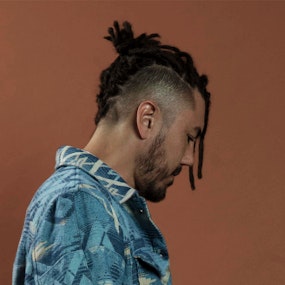
Justin Kawika Young
Singer / Songwriter
Born and raised in Hawai’i, Justin Kawika Young first found success in his island home. He accumulated eleven number-one hits on Hawai’i radio before relocating to Los Angeles. He quickly established a following in the local music scene there and connected with other singer/songwriters including
Young toured with Caillat as her acoustic guitarist/background vocalist and co-wrote two songs on Caillat’s All Of You album. In 2019 Justin and Caillat formed a band in Nashville with two friends called Gone West. They debuted at The Grand Ole Opry in October of 2019 and their first single, What Could Have Been, hit the top 25 at Country radio. Gone West has accumulated of 30 million Spotify streams.
Featured Episodes
Here are some great episodes to start with. Or, check out episodes by genre.























